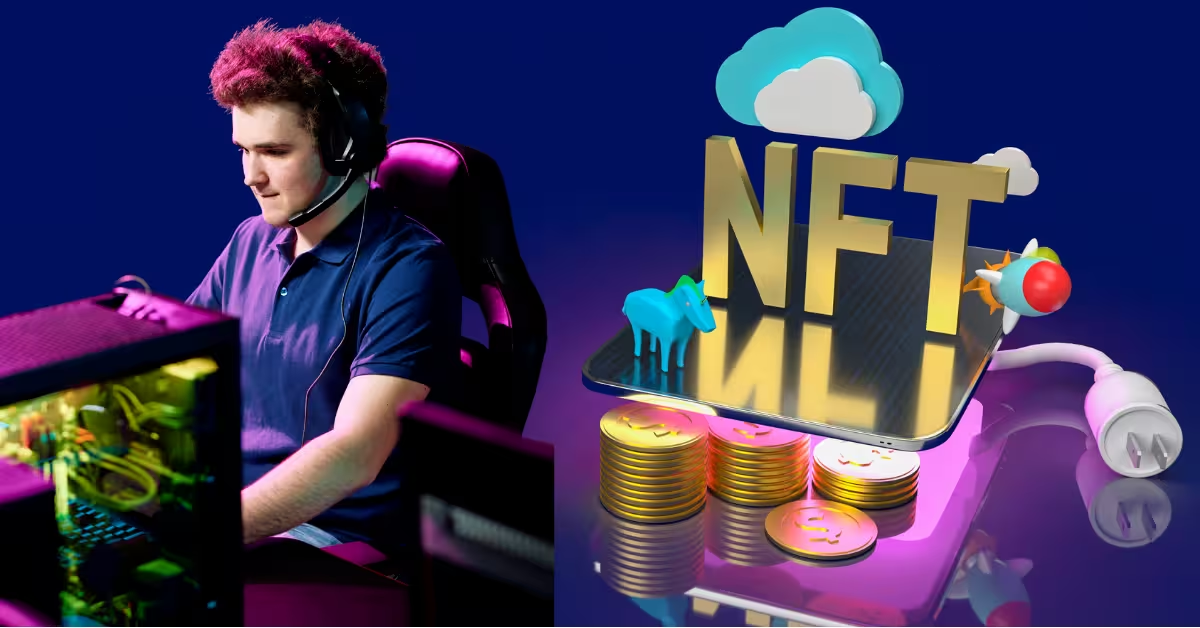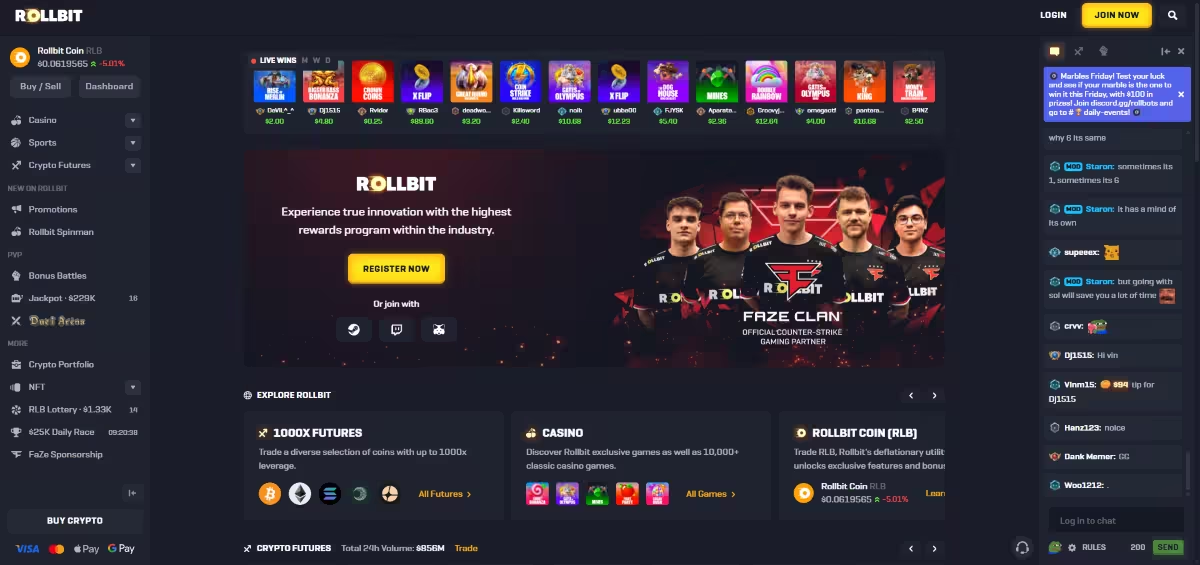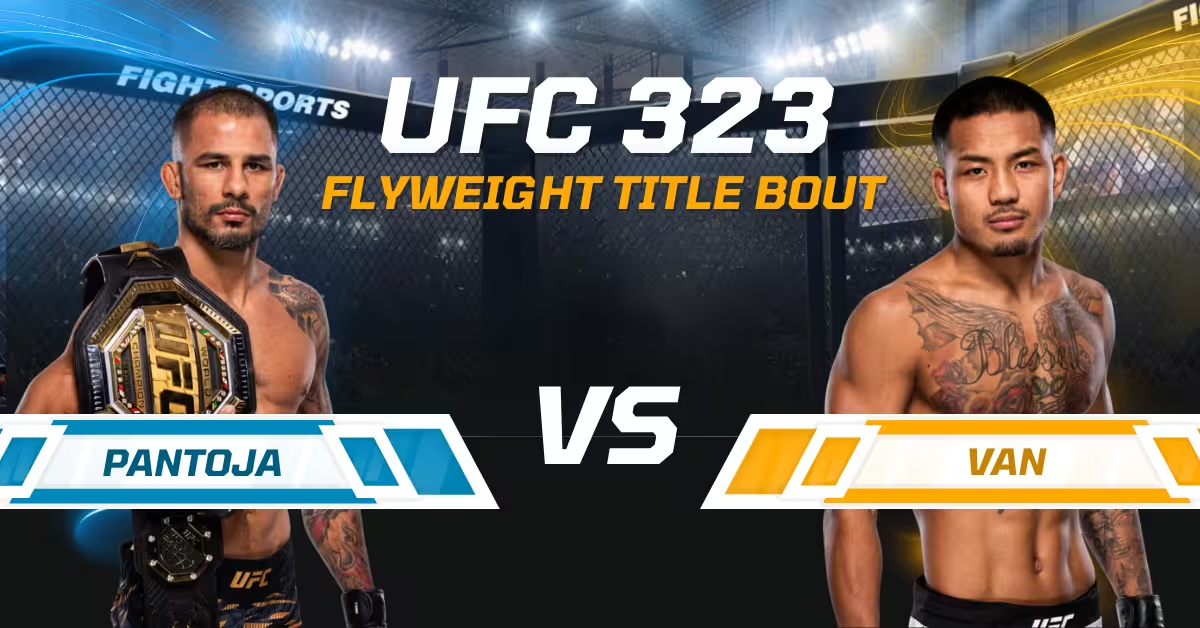NFT Stakes & eSports: Could You Bet With NFT Collateral in 2026?

You’re glued to an eSports final, and it’s one of those ones where every single play feels like it’s worth a paycheck.
But you aren’t betting cash. Nope, players and fans put up their digital assets, like that super rare and sought-after CS2 skin that’s been tucked away in their inventory or a team-branded NFT that’s rocketed in value since it was launched. Sounds weird, right? To the uninitiated, sure. But to those who are into NFT collateral? It’s logical.
Blockchain, NFTs, and competitive gaming are intersecting faster than anyone could have predicted, and the world is creating a new kind of wager that combines digital ownership with real stakes.
The idea is this: could NFTs work as collateral in eSports betting markets? If it happens, betting wouldn’t only be about predicting who wins a match; it’d also be about proving how much you’re willing to back up your conviction with a unique asset that is valuable to you.
How would that future possibly look? We are gonna tell you all about the tech that would make it possible, where platforms stand as of now, the legal walls that still have to come down, and why 2026 might be the year when NFTs move from collectibles to money on the table!
Setting the Stage: NFTs and eSports Collide
Non-fungible tokens (NFTs) are those unique digital assets; they’re recorded on a blockchain that certifies ownership and authenticity.
An NFT can represent anything from a piece of digital art to a video highlight, or, importantly for gamers, an in-game item like a skin or collectible.
It’s not like Bitcoin, where any two coins are interchangeable! Every NFT is one-of-a-kind. The uniqueness and verifiable ownership are what turn NFTs into something akin to rare game items, which is why people are considering them for betting collateral.
Before NFTs were a thing, “skin betting” in games set a precedent: players used in-game cosmetics as currency to wager on eSports matches or play casino-style games. Those skins, like weapon designs in Counter-Strike or Dota 2, are traded and have real-world value, function just like proto-NFTs.
Fans can bet on major gaming tournaments; titles like League of Legends, CS: GO/CS2, and Dota 2 are the most popular. But how big has eSports betting gotten?
Well, the crypto segment of eSports betting went up 35% from 2023 to 2025. And during the earlier skin-betting boom, the numbers were bigger; at its 2016 peak, the unregulated skin gambling market for just one game (CS: GO) was estimated at $4–5 billion, and that outpaced traditional eSports cash betting.
Why NFTs? For one, they’re all unique and scarce, and that gives them collectible value. They come with provable ownership via the blockchain, so there’s no question of counterfeit items or duplication.
NFTs are also easily tradable in global markets, so they have liquidity; you can buy, sell, or exchange them for cryptocurrency on various platforms at any time. The liquidity and clear value make them viable as a stake in a bet (kind of like wagering a gold watch or a classic car in the physical world).
And NFTs inherently resonate with gamers: a limited-edition eSports team NFTs that grant holders special perks speaks to them. Using them in a bet ups the ante; winning will give you another fan’s prized token, and losing will hurt more than losing cash.
In the realm of game items, Dota 2 and the new Counter-Strike 2 (CS2) carry on the tradition of skin economies, as they function similarly to NFTs even if they’re not on a public blockchain. Players treat rare skins as assets, and third-party marketplaces allow buying, selling, or betting with them, mirroring NFT marketplaces in a closed system.
On the official NFT side, some eSports organizations have launched branded NFTs that give fans utility. G2 eSports created a “Samurai Army” NFT collection on Solana, comprising 6,262 unique tokens that act as membership passes to a premium fan community.
Owners of the NFTs get perks like exclusive content, meet-and-greets, and other VIP access as long as they hold the token. Other teams and leagues have experimented with similar drops, using NFTs as digital collectibles that double as loyalty or reward cards.
How NFT Collateral Betting Could Work
What does betting with NFT collateral look like? Say you want to bet on an upcoming eSports match, like the Grand Finals of a big Valorant tournament. You don’t deposit cash into a betting site; you agree to stake an NFT you own as collateral for the wager.
It could be a rare Counter-Strike 2 skin or a limited-edition team NFT that both you and a counterparty recognize as valuable. That NFT will stay in escrow while the match is happening. If you win the bet, you get your NFT back; if you lose, the ownership of that NFT transfers to the winner as the prize.
Smart Contracts
All of this would likely be handled by smart contracts, which are self-executing codes on a blockchain that can hold and transfer assets based on preset conditions.
When you stake your NFT on the outcome of a match, a smart contract automatically locks up that token in a secure escrow where neither party can access it until the bet is resolved.

Bets would be settled with no middleman, as the code is programmed to do one thing: if Team A wins, send the NFT to the opponent (or back to the owner if they bet correctly); if Team B wins, send the NFT to the owner (or back to the opponent if they bet correctly). The automation minimizes the risk of someone reneging on the bet.
Outcome Resolution
How does the smart contract know who won the match? Oracles. Blockchains themselves can’t directly fetch external data; they’re closed systems.
What’s an oracle? It’s a bridge that feeds real-world info (like match results from an official tournament API) into the blockchain. With an eSports bet, a decentralized oracle service (like Chainlink) can pull the final score or winner info from a trusted source and deliver it to the smart contract.
Decentralized betting platforms are already using oracles to fetch sports scores and settle wagers in smart contracts. Once the oracle confirms that Team A won, the smart contract automatically executes the payout logic. Assuming that it’s done correctly, the oracle+contract combo makes sure that the NFT is returned to the rightful winner without any manual intervention.
Integration with Existing Betting Platforms
For NFT betting to really get going, it would have to be tied into platforms that players already use, like sportsbooks that are branching into crypto, or new blockchain-based betting exchanges.
We’ve already seen crypto casinos and sportsbooks exploring NFT integration, so a blockchain-native betting site could just add a feature:
- Connect your crypto wallet.
- Pick an NFT from your wallet to stake
- And then the site’s smart contract takes over.
Existing online casinos could partner with NFT marketplaces to enable valuing and holding NFTs. It’s also plausible that totally new peer-to-peer betting marketplaces will emerge, and they’ll be built on Ethereum, Solana, or other networks, and users could create “rooms” to wager NFTs against each other on match outcomes.

The crypto gambling platform Rollbit has an NFT marketplace and lets users stake certain NFTs for jackpot-style games or use them as loan collateral. And on the casino side, BC.Game (a crypto casino) launched an NFT membership pass called Degen Pass that grants entry to exclusive games and perks in its metaverse casino.
What are some other possibilities for NFT-backed betting mechanisms? Here are some examples:
- Peer-to-Peer Wagering: Two individuals bet directly with each other, each staking an NFT. A smart contract swaps the NFTs to the winner at match end. This could be done informally (between friends) or via a P2P marketplace that connects bettors and collects a small fee.
- NFT-Collateralized Betting Loans: If you have a valuable NFT but don’t want to lose it, you could borrow cryptocurrency against your NFT from a DeFi lending platform and use that crypto to bet. Your NFT is collateral for a loan that funds your betting bankroll. If you win bets and you profit, you pay back the loan and retrieve your NFT; if you lose, you will forfeit the NFT. This is a more complex, multi-step approach, but it leverages the growing NFT-Fi trend where people use NFTs as collateral for loans.
- eSports Tournaments with NFT Prizes/Stakes: In community-run tournaments where entry fees are paid in NFTs, the prize pool could be an NFT or a collection of them. Players might not be betting per se, but they are risking an NFT to compete. Or official tournaments could award special edition NFTs as prizes, which players could later stake in bets or sell.
2025 NFT-Based Betting
The entire concept of NFT wagering in eSports is still mostly nascent and experimental, but it’s happening slowly but surely. A few of the more adventurous platforms are already testing out elements of it.
Platforms Already Experimenting With It
There are a handful of online betting platforms that have begun dabbling in NFTs to attract the crypto crowd.
As we said, Rollbit is one that’s popular; it was one of the first casinos to introduce provably fair games involving high-value NFTs as bets. They built an NFT marketplace into their site and allow users to stake NFTs (like their own Rollbots NFT collection) to earn a share of casino profits or enter jackpot draws.
You can gamble with NFTs here; a player can stake a Bored Ape NFT for a chance at a huge payout instead of betting with cash.
Another platform, Stake.com, hasn’t integrated NFTs directly yet, but as one of the world’s largest crypto sportsbooks, it could change any day now.
Companies like Chiliz have tokenized the sports fandom; they’re not a betting site, but they demonstrate how digital assets can represent team loyalty and could someday be used in contests between fans.
Another parallel? That stems from the world of skin gambling in the mid-2010s that foreshadowed NFT betting. Before Valve shut it down, websites let players connect their Steam inventories and wager CS: GO skins on casino-style games or match outcomes.
It was super popular; Counter-Strike skin betting saw an estimated $4.6 billion worth of skins wagered in 2016. The sites operated in a legal gray area, but they proved the concept that gamers will bet with digital items they value.
Skin Gambling Déjà Vu
With skin gambling, the resemblance to the NFT scenario is not coincidental. If you feel that tingle of déjà vu, it’s because we’ve been here before. In the 2010s, third-party sites allowed players to use in-game items as betting chips.
Remember CS:GO skins? You’d deposit your cool rifle skin, play roulette or bet on an eSports match, and if you won, you’d get rarer skins back (or if you lost, kiss your item goodbye).
By 2016, the underground industry hit staggering levels; in a year, $5 billion worth of skins were gambled, with around 35% of that on eSports matches. It was unregulated and ended with scandals, like the YouTubers who secretly rigged skin betting sites they owned, and lots of legal threats.
Valve, the game developer, sent cease-and-desist letters and pressured many skin gambling sites to shut down. That crackdown was really messy but did tamp down the practice, at least temporarily.
Why does this history matter? Because it shows both the potential and the risks of digital-asset betting.
The NFT betting movement will have to address the past issues, and it has to be with formal regulation and age checks if it wants to survive. But the skin gambling era proved that using digital collectibles for wagers works, technologically and culturally, on a massive scale.
Blockchain Integration Progress
A reason NFT betting could succeed where skin betting tripped up is the much better tech infrastructure. Most skin wagers were done on centralized websites with opaque operations, but blockchain tech has matured and has faster, cheaper, and more transparent transactions.
Unlike early Ethereum, which was slow and costly, Solana can handle thousands of bets per second with fees under a penny, which is a huge deal if you want to settle wagers or transfer NFTs instantly after a match.
Ethereum has been scaling up: Layer-2 networks like Arbitrum or Optimism, and sidechains like Polygon cut costs and confirmation times for transactions. It’s now feasible to send an NFT or call an oracle on-chain without waiting or paying a fortune.
Betting platforms are already envisioning “cross-chain” wagering where you could bet with assets across Solana, Ethereum, and Polygon. All of the integration progress adds up to this: the technological barriers are falling. And by 2026, transferring an NFT into a betting smart contract could be as quick and easy as placing a PayPal bet on a website today, but with the extra benefits of transparency (you can see the escrow on the blockchain) and security (no company can run off with your asset mid-bet without everyone noticing).
Investor and Gamer Sentiment
Putting technology aside, will people actually go for this? As of now, the sentiment among investors and gamers is mixed.
Crypto lovers and some in the eSports scene are intrigued by any new way to leverage digital assets. Younger demographics are increasingly crypto-friendly; about 40% of Millennial and Gen Z consumers now own cryptocurrency, and around 14% have owned an NFT.
That suggests a big demo of the eSports fanbase is already comfortable with the concept of digital assets having real value. For them, NFT betting could be an organic extension of their hobbies of trading crypto and watching eSports.
But the core gaming community has shown a lot of skepticism toward NFTs. We saw major pushback when big gaming companies like Ubisoft tried to introduce NFTs in mainstream games; gamers saw it as a cash grab or didn’t see the benefit, and there was a lot of backlash.
The phrase “NFT” itself can be polarizing in gaming circles; some players equate it with scams or unnecessary monetization. So if NFT betting is to catch on, it has to show it has value to fans and not just be gambling.
There’s also the emotional factor: would a gamer really risk losing their beloved digital collectible? It’s one thing to lose $50 on a bet; it’s another to lose your ultra-rare skin that you’re attached to.
On the investor side, companies and stakeholders’ interest in eSports is growing, albeit slowly. Venture capital has invested heavily in crypto betting platforms and NFT startups. Tournament organizers and teams are always looking for new revenue streams and ways to boost engagement; NFT betting could give them both, but they’ll tread carefully because of regulatory uncertainty and fear of community backlash.
We could see smaller or more crypto-native eSports organizations test it out first by offering NFT-based prediction contests or partnering with crypto betting firms. If those experiments show promise and don’t alienate fans, bigger players could follow.
Legal & Regulatory Roadblocks
Before we get totally carried away with techno-utopian visions, let’s hit the brakes; the biggest obstacles to NFT-backed eSports betting aren’t tech or user interest; it’s law and regulation. Gambling is one of the most tightly regulated industries worldwide, and throwing NFTs into the equation brings up a lot of questions that regulators have to grapple with.
Betting Classification
First and foremost, if you stake an NFT on a bet, is that legally considered gambling? In most places, the definition of gambling is wagering something of value on an outcome of chance (or a contest) in hopes of winning a larger prize. Regulators will almost certainly view NFTs as a “thing of value” in this context. If you’re betting $100 cash or an NFT worth $100, the principle is the same; you’re risking value on an uncertain event.
U.S. authorities have already indicated that when players win NFTs in games (or presumably bets), those NFTs count as winnings of value and thus trigger gambling laws. So NFT betting doesn’t dodge gambling classification; it squarely falls under it. Any platform that offers NFT wagering would need a gambling license in whatever jurisdictions it operates, just like a cash betting site does.
And certain NFTs could be considered securities or investment contracts, depending on how they’re used, which raises additional flags. An NFT that offers profit-sharing in a casino or team (as seen in the Slotie NFT casino’s attempt) can attract attention from securities regulators.
In the Slotie case, multiple U.S. states accused the operators of selling unregistered securities in the form of NFTs and subsequently shut it down. That’s a cautionary tale: if an NFT is marketed in a way that promises ROI or ownership in a venture, it can trip securities laws on top of gambling law.
NFT Valuation Complexity
Let’s say regulators are on board with the concept in principle; another huge hurdle is how to handle NFT valuation and volatility. Traditional gambling regulation likes clear units (dollars, chips, credits) and predictable payouts.
NFTs blow that up because their value is subjective and can change. How do you guarantee that a bet is fair when the staked item’s price could fluctuate during the bet? Two people might each stake an NFT ostensibly worth $500 at the time of betting, but by the time the match ends, one NFT’s market value dropped to $300, and the other’s went up to $800.
The loser will have lost a much more valuable prize than the winner did. Regulators (and bettors) will worry about these scenarios, and establishing a “fair market value” for NFTs is notoriously hard; prices are set by auctions and could be manipulated or illiquid.
The variability is an obstacle for licensing and taxation, too. Gambling regulators want to know the precise value of wagers and payouts (to enforce betting limits or tax the winnings). With NFTs, that’s a moving target; do you calculate it at the time of bet placement, or when the bet settles, or an average? Overcoming that will take some really creative solutions and regulators who are willing to be flexible or create new categories.
Anti-Money-Laundering (AML) Compliance
Another big concern is AML and KYC (Know Your Customer) rules. Gambling sites are required to verify users’ identities, source of funds, and report suspicious activities to prevent things like money laundering or terrorist financing.
Crypto in general gives regulators agita on this front because of pseudonymous wallets and cross-border transactions. NFTs can be used to transfer large values anonymously, and because NFTs are considered crypto assets, operators would have to apply the same strict AML checks as they do for cash.

This means if you want to bet with an NFT, you’d have to link it to an account with full identity verification on a licensed platform. The platform would need to assess the NFT’s provenance; was it obtained legitimately? Any signs that it’s linked to illicit activity?
The U.S. Treasury has flagged the NFT art market as a potential money laundering risk, since high-value art (physical or digital) can be used to move money secretly. Similar risks apply here: a criminal could buy an expensive NFT with dirty money, then gamble it and intentionally lose to an accomplice, which “cleans” the asset. Preventing this would take careful monitoring of NFT transactions, possibly blacklists of known stolen or illicit NFTs, and the reporting of any large or odd transfers.
Regional Differences
The regulatory acceptance of NFT-based betting will vary by region. In the United States, regular eSports betting is only just getting recognition state by state. Add in NFTs, and you can bet U.S. regulators will be extremely wary.
We might see a state or two with more crypto-friendly stances pilot something; Nevada or New Jersey could issue specific guidelines if there’s industry demand. But in general, expect the U.S. to treat NFT wagering as gambling at best (needing a license in each state) or illegal securities trading at worst if done improperly.
Certain regions in Europe might be more open to experimentation under clear regulations. The EU’s new MiCA (Markets in Crypto-Assets) regulation largely exempts one-of-a-kind NFTs from heavy crypto regulation, but that doesn’t override gambling laws.
European countries with established online betting markets (like the UK and Malta) could consider licensing NFT gambling if operators prove they can value and manage NFTs properly.
Malta is a hub for crypto gambling companies; they may well allow licensed casinos to accept NFTs as deposits or bets, treating them like accepting crypto tokens. Countries like Singapore or South Korea are exploring regulated crypto frameworks and could potentially allow NFT betting in a sandbox environment to see how it goes.
Major eSports markets like China are off-limits (China bans most forms of both gambling and crypto trading). But places like Japan, which has a huge gaming culture, are slowly warming to crypto assets (with heavy oversight); Japan might eventually allow some form of tokenized betting if it’s tightly controlled.
The Potential Upside: Why This Could Disrupt eSports Betting
Now, assuming we can navigate all of the regulations and technical kinks, why? Seems like a lot of hassle to mix NFTs with eSports betting. Well, it could unlock new dimensions of engagement and economy in the scene. The upside, for those who can do it, would be enormous!
Improved Liquidity
NFTs could give players more liquidity and flexibility in how they bet. Most gamers might not have large cash balances, but they might be sitting on valuable digital items or collectibles. By enabling bets with NFT collateral, a fan can bet with their portfolio of digital assets.
This means you don’t need to liquidate your prized skin or NFT to get cash for betting; you can put it to work directly. It’s similar to how NFT lending platforms let you borrow against your asset instead of selling it; here, you’re kind of “borrowing” against your NFT for a bet, with the outcome deciding who ends up with it. From the bettor’s perspective, this opens up new bankroll possibilities. It could also attract crypto investors (who hold NFTs as assets) into the eSports betting fold, injecting more capital into the betting markets. More liquidity generally means bigger betting pools, higher stakes, and potentially better odds.
Better Fan Engagement
NFTs add an element of fandom and identity that money can’t match. If eSports betting starts to incorporate NFTs, it could increase fan engagement with their teams and games. Instead of just betting $100 on Team X to win, you stake a limited-edition Team X NFT that gets you VIP access to their fan club. Now, the bet isn’t just monetary; it’s personal.
You’ve shown your loyalty by putting your team’s token on the line. If you win, you might get an even more exclusive NFT from another fan; if you lose, a rival fan takes your token. The dynamic can drive community interaction and rivalry in a fun way.
eSports teams and tournament organizers also stand to gain in engagement. They could issue special edition NFTs for big events, which fans use in contests or bets. Teams like G2 have already shown that NFT membership passes can create dedicated communities of fans, and those passes could be integrated into betting promotions, like only pass holders can partake in certain high-reward prediction pools.
Cross-Market Utility
One of the coolest prospects is the idea of cross-market utility for NFTs. Right now, you might have separate items for separate uses: a skin to use in-game, a ticket for event access, and money for betting.
But NFTs have the power to be multi-purpose! The same NFT could grant you entry to a tournament’s VIP section (as a ticket or fan token) and serve as your betting stake for matches in that tournament. This breaks down silos between different aspects of the eSports experience. An NFT issued by a tournament organizer might be redeemable for merchandise discounts, usable as a vote in deciding an All-Star game lineup, and also acceptable as collateral on the event’s official betting partner platform.
A swappable utility increases the overall value of the NFT; it’s not just a static collectible, it’s a key that unlocks various services. From a user standpoint, it’s convenient and rewarding: you invest in an NFT and enjoy a suite of benefits, including the ability to bet with it.
For the ecosystem, the cross-use fosters partnerships (between teams, event orgs, and betting platforms) and consistency. It could also reduce friction in moving value around; there’s no need to convert cash to chips to tokens; one asset travels with you through different arenas of interaction.
NFTs could become the universal currency of eSports fandom, used interchangeably for access, trading, and betting. Some sports NFTs double as fan engagement tools and have marketplace value, so extending that to betting isn’t a big leap. The result could be a more unified economy around eSports, where everything from spectator experiences to gambling is intertwined via a common digital asset system.
New Revenue Streams
If NFT betting catches on, eSports teams, leagues, and casinos stand to unlock whole new revenue streams. With eSports teams, traditionally, they make money from sponsorships, merchandise, and maybe a slice of league media rights.
With NFTs, teams could mint their own series of tokens, and those could end up being used in fan betting. A team would earn royalties on every resale of their NFTs, so if their tokens become hot collateral for wagers, they profit each time fans trade or stake them.
And teams or streamers could host their own NFT wagering events, where a viewer’s betting pool entry is an NFT purchase, and the team/streamer gets proceeds from the NFT sale.
Casinos and betting operators could also create branded NFTs; a sportsbook could sell “NFT chips,” which are limited digital chips that you can collect or use to bet, and they’d come with perks like higher payout multipliers or VIP club access attached.
They could be sold at a premium and resold among gamblers, generating transaction fees for the operator.
And by eliminating some middlemen with smart contracts, operators could decrease costs and redirect that into more attractive odds or promotions, drawing more customers. I NFT betting brings in new participants who wouldn’t normally gamble (like collectors or crypto hobbyists), that’s an expanded customer base.
Risks, Scams & Market Manipulation Concerns
Before we declare that NFT betting will be the next big thing, it’s only fair to address the shady side and risks. Sadly, wherever cutting-edge tech and money meet, scammers and problems will follow. NFT-based betting inherits risks from both crypto and gambling realms, and introduces a few new ones of its own.
Volatility
NFT prices can change without warning; cryptocurrencies are volatile as it is, and NFTs can be even more erratic because their value is so subjective. This poses a direct risk to using them as collateral. If you staked an NFT that’s worth $1,000 on a bet, and during the match, news breaks that the game studio will ban trading of that NFT, its market value will drop 50%.
If you win the bet and get your NFT back, you’ve lost half its value through no fault of your own. If you lose the bet, the winner will feel short-changed (they expected a $1,000 prize, and it’s now worth $500).
For a betting platform, extreme volatility is a nightmare: it could trigger disputes (“I want my item’s pre-crash value, not the item itself!”) or platform insolvency if values swing between the time bets are placed and settled. Although volatile odds are normal in betting, volatile stakes are not.
The risk could lead platforms to enforce stablecoin conversion of NFTs on entry, but that reintroduces intermediaries and undermines the point of betting with the NFT itself. In any case, participants have to accept that staking an NFT means you’re exposed to two gambles at once: the match outcome and the market value of the NFT. It’s double the risk, which for some might be double the thrill, but for others it’s a good reason to stay away.
Related to volatility is the issue of liquidity. A lot of NFTs, especially those outside the top collections, don’t have deep markets of buyers and sellers. If you win a niche NFT from someone in a bet, turning that into cash could be difficult. Maybe no one wants to buy that obscure skin, or it takes weeks to find a buyer at a reasonable price.
Traditional sportsbooks pay out in cash, which you can use immediately; an NFT payout can be locked until you can liquidate it. And low liquidity makes price manipulation much easier; someone might artificially trade an NFT among a couple of wallets to pump its price right before using it as a betting stake, tricking others into overvaluing it.
Without a steady market, it’s hard to pin down a “fair” value, and winners could end up holding a white elephant that they thought was treasure. Developers are working on solutions to NFT illiquidity (like fractional NFTs, NFT lending, or automated market maker exchanges for NFTs), but these are in the early stages. Until solutions are there, betting with anything other than blue-chip, highly liquid NFTs is super risky; you might win something you can’t cash out or can’t use. And if you lose and want to buy back a similar NFT? The market’s illiquidity could make that very expensive or outright impossible if it were a one-of-a-kind item.
Scams and Rug Pulls
Unfortunately, the NFT space has been rife with scams, and adding gambling provides new vectors for fraud. A major concern is the possibility of rug pulls by unscrupulous platforms. In unregulated crypto casinos or P2P betting dApps, there’s nothing stopping the operators from disappearing with all staked NFTs or using loopholes to cheat users.
It happened in DeFi and NFT projects: developers raise funds or hold assets, then vanish (the classic “rug pull”). If a shady betting site accumulates a lot of user-deposited NFTs in escrow, that honeypot might cause an exit scam, and users have little to no recourse in these cases.
Then there are scams that target individuals: fake “betting” smart contracts that just steal your NFT when you try to stake it, phishing links promising a big contest that instead drain your wallet, etc.
Since mid-2021, over $100 million worth of NFTs have been reported stolen through scams and hacks, and that’s a low estimate of the true scale. The creativity of scammers in crypto is frightening; they exploit hype, FOMO, and technical naiveté.
There’s also the risk of match-fixing re-entering the picture: if high-value NFTs are on the line, unscrupulous players or tournament organizers could be bribed to influence results, similar to how some did for skins in the past. Top-tier eSports have become more professional; lower-tier matches could be targets for this kind of manipulation.
Regulatory action itself can label projects as scams. We saw regulators call out the Slotie NFT casino project as fraudulent to investors. If NFT betting platforms operate without clear approval, they might be branded illegal, and their users could lose access to funds or face legal notices. Sudden shutdowns could freeze or invalidate any ongoing bets; your NFT is locked in a contract when authorities seize the servers or developers abandon ship; getting it back would be a nightmare.
Data or Oracle Manipulation
Even if we assume the platforms and participants are honest, the reliance on oracles and data feeds introduces another risk: incorrect or manipulated data determining bet outcomes.
In decentralized betting, if the oracle says “Team A won,” then the smart contract pays out accordingly. But what if the oracle is compromised? An attacker could bribe or hack an oracle to report the wrong winner for a match, allowing them to cash in on a bet they should have lost.
Or, if a betting dApp uses a single API for match results, a DDoS attack or outage at that source could delay result reporting, causing confusion and disputes. The Web3 ethos solution is to decentralize oracles, but decentralized oracles aren’t perfect: attackers might still attempt to feed false data to influence outcomes if the oracle relies on a single provider.
And smart contract bugs could be exploited. If there’s any flaw in the escrow contract, hackers might steal NFTs directly from it or duplicate them. The technical complexity of handling different NFT standards and guaranteeing secure transfers is non-trivial; any weakness becomes a target when valuable assets are involved. Both the integrity of external data and the security of on-chain code are possible points of failure; a major oracle failure or contract hack could shatter the trust in NFT betting and cause users to run.
Regulatory Whiplash
Regulatory action (or plain uncertainty) is a risk in itself. A jurisdiction could declare betting with NFTs is illegal, and that would force platforms to shut out users from that country.
We could also see scenarios that are reminiscent of early crypto exchanges or poker sites being geoblocked or seized. For users, that “whiplash” could mean one day you’re betting your NFTs, and the next day your account is frozen because the site is under investigation.
The precedent with skin gambling is telling: Valve’s 2016 crackdown was swift and left a lot of people with skins stuck. We could see an equivalent if authorities decide that NFT betting is causing harm; they could pressure game companies to block NFT linking, or pursue legal action against organizers, which would scatter the nascent community.
Expert Predictions: Could 2026 Be the Turning Point?
Given all of these factors, what do those in the industry think? Is 2026 the year when NFT-backed eSports betting goes mainstream, or will it flop?
Analysts and industry watchers are cautiously optimistic about the fusion of crypto/NFT tech with online betting. The trends point upward: crypto betting as a whole went mainstream in 2024, and NFTs have penetrated entertainment sectors.
The convergence seems logical, and there are experts who predict that by 2026, we’ll see hybrid platforms where traditional bets, crypto bets, and NFT bets all coexist.
In this vision, a major sportsbook could offer NFT deposits alongside dollars and Bitcoin, and list odds for NFT-versus-NFT wagers on big matches. Enthusiasts predict that by 2026, early adopters will have validated the model, showing the viability of a regulated, secure NFT betting platform, which will then pave the way for larger players to enter the market.
We might see a respected eSports bookmaker partner with a blockchain company to launch NFT betting in a controlled way, which would go a long way in legitimizing the concept.
But any optimism is couched with caveats around regulation; no one expects every country to allow NFT betting by 2026, but if a few markets do, that could be enough to get the ecosystem going and show success.
From the eSports team’s perspective, there are some signs that they’re warming up to Web3 ideas after some initial stumbles.
Teams like TSM and G2 have invested in blockchain infrastructure or NFT projects for fan engagement, and others like Team Liquid have launched NFT platforms for fans.
Although these are not about betting, they show a trajectory: teams are laying the digital groundwork that could extend into gamified experiences like prediction games or wagers among fans. By 2026, it’s conceivable that an eSports org might run its own community betting pools with team-branded NFTs. If even one prominent team does this successfully and legally, others will follow.
The prediction here is that eSports stakeholders will cautiously adopt NFT betting features in phases. First, as non-monetary fan engagement (like free predictions for NFT prizes), then maybe small-scale token wagers in partnership with licensed platforms, and eventually full-blown betting integration if laws allow it. If teams see that it drives up viewership and participation without causing controversy, they’ll be on board.
Technologists are pretty bullish and think that by 2026, the infrastructure will be ready for whatever models NFT betting needs. They cite things like: oracles are becoming stronger, smart contract security is improving, and the emergence of NFT-specific financial primitives, like pricing oracles, NFT insurance, and fractionalization, all of which make it easier to integrate NFTs into complex applications like betting.
Another tech aspect is user experience. Right now, dealing with crypto wallets is too much for average users. But predictions are that by 2026, more users will have seamless wallet experiences. Companies are working on custodial wallets that are linked to email accounts, gasless transactions, and other quality-of-life improvements. If those pan out? Betting with an NFT could be as easy as clicking a couple of buttons, with the backend handling the blockchain stuff.
In the rosiest scenario, by late 2026, NFT-backed eSports betting might have a place, but it will be small, and most importantly, regulated. There could be a few licensed platforms in Europe or Asia that have NFT collateral betting on major eSports events. Only certain high-liquidity NFTs will be allowed, there’ll be KYC on all users, and limits on values to prevent extreme cases.
The platforms will operate transparently, hopefully with oversight from a gambling commission that has updated its rules to include digital assets. We might see on an eSports broadcast a segment about “the NFT stakes leaderboard” or something, not unlike how some shows mention betting odds, they could mention NFT wagers. It would still be niche in terms of participants, but it would be visible and accepted as part of the ecosystem.
Traditional bookmakers could also get in by accepting NFTs as a deposit and converting them to cash bets internally for broader acceptance. The market size would most likely be modest (maybe a few hundred million dollars in wagers per year globally, compared to multi-billion-dollar traditional eSports betting).
It’s also possible that NFT betting doesn’t take off by 2026, or it flops if it does. One bearish scenario? The whole NFT market continues to slump or is still speculative, and players just aren’t interested in betting with assets that could lose value independent of the bet.
Another possibility is a lack of trust and adoption: mainstream bettors might stick to what they know, and NFT collectors might shy away from the stigma of gambling. It could stay on the fringe of unregulated sites, not gaining the traction needed to convince big players to invest in it.
Experts who are skeptical point out that the intersection of two speculative domains (NFTs and gambling) is just too volatile and problematic to sustain. They warn of a potential bubble: initial hype could drive some crazy bets, but when a few people get burned, the fad will collapse. If no serious institutional support comes because of the legal fears, it might never professionalize enough to be a reliable thing.
How Bettors Should Prepare
If NFT-backed eSports betting does happen, it’ll reward bettors who plan ahead. What do you need to know? The following:
- Follow the Rules Where You Live: Stay current on crypto and gambling regulations in your region. If NFT wagering gets legalized or restricted, the updates will hit gaming and tech news.
- Stick to Verified Operators: Only use sites with licenses or a good reputation in crypto gaming. If a platform hides its ownership, smart contract code, or community feedback? Don’t use it.

- Bet Only What You Can Afford to Lose: If it’s crypto or an NFT, don’t risk something you’d regret losing. Keep your “playable” assets separate from your prized collectibles or sentimental items. Once an NFT leaves your wallet, it’s exposed to risk.
- Safety Tools: Insurance options or AI-based valuation tools will probably emerge to assess NFT worth and help balance wagers. Until those become mainstream? Always triple-check what your token is worth and protect your assets with two-factor authentication!
Will 2026 Be the Year of NFT-Backed eSports Wagers?
Betting on eSports with NFTs could redefine how fans interact with their fav games! Or it could stay what it is now, and that’s a niche experiment. The infrastructure is almost there: there are smart contracts, blockchain oracles, and crypto-friendly betting platforms that are melding. What’s left to implement? That would be regulation and user trust.
If those two pieces do somehow manage to fall into place, NFT wagering could become a small but legit segment of eSports betting by 2026. If not? It’ll join the annals of crypto innovations that sounded better in theory than in practice!
Here’s a quick recap of everything we went over above:
- NFTs introduce unique and verifiable ownership into eSports betting.
- Blockchain and smart contracts could automate secure wagers.
- Legal recognition and valuation accuracy are still the biggest roadblocks.
- A cautious adoption and super-strict platform vetting are a must.
- Even if the concept falls flat? NFT wagering is a sneak peek at where digital betting is going.

Alyssa contributes sportsbook/online casino reviews, but she also stays on top of any industry news, precisely that of the sports betting market. She’s been an avid sports bettor for many years and has experienced success in growing her bankroll by striking when the iron was hot. In particular, she loves betting on football and basketball at the professional and college levels.








